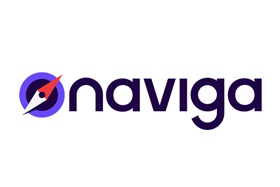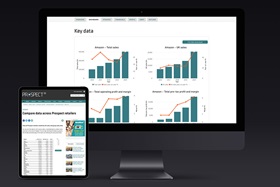
punching above you weight
Imagine a publishing world where you are able to control every aspect of the reader experience on your site, where your website automatically reformats itself to fit every screen, where you can redesign your homepage or add new content sections quickly and easily, where you can experiment with paywall, metred and gated access strategies – all this without any input from your web developer. A world where you can see a complete picture of each reader and tailor your content and marketing strategies accordingly; where your website doesn’t fall over every time Google releases a new version of Chrome or the EU changes its VAT rules. A world where you don’t live in fear of your web developer taking a two-week holiday, let alone and God forbid… leave!
The good news is that this is a reality for a lot of publishers; the bad news is that those publishers are the big boys with big resources. For most small and medium-sized publishers, the above is a pipe dream.
Until now, that is.
In April, Abacus released a new platform, Webvision Cloud, which Ian Eckert, managing director – audience development, and Dan Murphy, marketing director, expect will be a game changer for the SME publisher. In a nutshell, says Ian, it’s a cloud-based, end to end, out of the box publishing solution where the content and audience management functions are fully integrated. It is, adds Dan, a complete publishing and customer experience toolkit, with enterprise-level functionality but priced and packaged for the SME publisher.
The buy vs build conundrum
“Most SME publishers have”, says Ian, “already invested quite heavily in their website and, as they see it, don’t want to spend that money all over again! There is also a quite understandable perception that ‘our requirements are unique and that no off-the-shelf package will be able to cater for them as well as a system we build ourselves’. There is also a belief that open source platforms are the answer.”
But, as Dan points out, there are a number of inherent risks in the ‘build’ route. Publishers will often use an underlying free open source platform, like WordPress or Drupal, then on top of that pay a developer to build the all-important publishing-specific functionality and integration, often building in modules from other suppliers. Obviously the publisher will fund the customisation, but equally importantly, they have now in effect, become part of a customer base of one. They will not benefit from enhancements made by other users of the system they have created, because … there aren’t any!
The fact is that these platforms are designed to be used by developers, and so most changes will require recoding and redesign. This can be expensive and make it harder to react quickly to changing circumstances or new opportunities.
You are also reliant on the web developer. In the end, you are left with the complex task of managing programmers and that is not a core competency for most publishers.
Don’t let tech be your Achilles heel
Publishers, large and small, have two main assets, continues Ian, their existing audience and their expertise. This should make them invulnerable, but it doesn’t. Audiences are becoming more demanding – they see the excellent sites served up by online retailers and subscription services like Netflix and are becoming increasingly intolerant of inferior user experiences. There is only so many times you can serve a pop-up subscription offer to an existing subscriber before they start to get irritated.
The customer experience bar is being set ever higher and all publishers face the threat of technically savvy, nimble disruptors entering their markets and stealing share. Publishers need a technology platform that is an enabler, not a millstone around their neck.
The publishers that succeed, says Ian, are those that use data wisely, think on their feet and act fast, place digital at the heart of their business and who manage to keep the techies at arm’s length.
To read the full article, please visit the InPublishing website.




